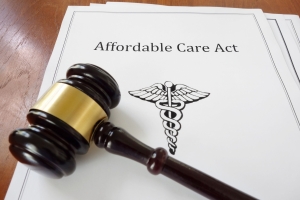Employers
Agency officials were busy last week releasing updated forms and publications while also proposing new rules that would generally impact health plans in 2020. Here are three important releases which are now available:
The Employee Retirement Income Security Act of 1974 (ERISA) requires employers to provide a Summary Plan Description (SPD) to employees if they offer health, dental, vision, life, disability or other benefits.
This does not apply to all employers. Please read full article below for details.
2018 ACA Reporting Deadlines are Approaching
It’s that time of year where applicable large employers (ALEs) and certain other employers need to focus on completing their reporting obligations required under the Affordable Care Act (ACA). Here are some helpful tips and reminders.
Whether it be to inflation adjustments, new laws, tweaks to existing regulations or other reasons, each new year brings changes to health plans and other benefits. Here is a summary of 10 important changes taking effect in 2019.
1) There will be no penalty under federal law if you don’t have health insurance. The Tax Cuts and Jobs Act made the cost for not having health insurance $0 starting in 2019.
Health Savings Accounts (HSAs) allow eligible individuals to put money aside tax-free to pay for out-of-pocket medical expenses, but HSAs work differently than other tax-advantaged accounts. Here are 10 helpful tips and reminders as the year comes to an end.
Last Friday, a federal judge in Texas ruled the Affordable Care Act (a.k.a. Obamacare) unconstitutional.
The judge’s decision came in response to a lawsuit filed by 20 Republican state attorneys general earlier this year. The lawsuit was filed after the Tax Cuts and Jobs Act zeroed out the Individual Mandate penalty. The lawsuit claimed the Individual Mandate was so essential to Obamacare, and without it, all of Obamacare must go. The judge agreed.
Many employers offer a cash payment to employees who waive health insurance coverage. These cash payments are always taxable to employees who waive health insurance coverage, but did you know employees who elect the health insurance coverage may be subject to paying taxes on the cash payment that they didn’t receive?
Wait! What?
It’s that time of year again. The days are getting shorter, the trees are mostly bare, the holidays are just around the corner and open enrollment is in full swing. If you’re like most benefits professionals, you probably head into open enrollment with a mixture of enthusiasm and dread.
On November 15th, the IRS released Revenue Procedure 2018-57 which includes inflation adjustments for certain employee benefit programs and other items.
The Affordable Care Act (ACA) created a research institute known as the Patient-Centered Outcomes Research Institute (PCORI). The goal of PCORI is to help patients and those who care for them make better-informed decisions about healthcare choices. PCORI is funded by fees which are charged to health plans.
The following information is designed to help employers understand their upcoming payment obligations.
Benefits Buzz
Enter Your Email









